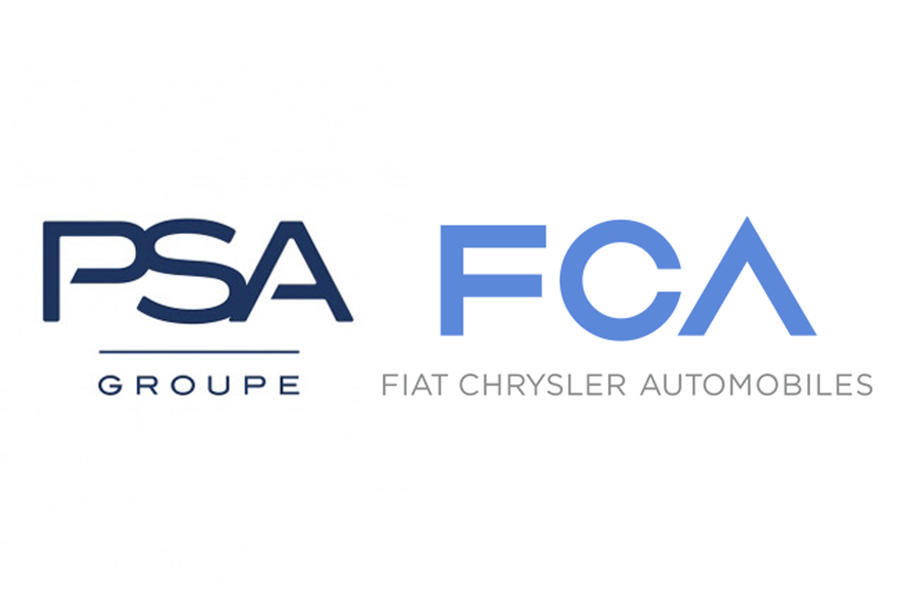The PSA Group and Fiat Chrysler Automobiles have officially signed a deal for a full merger, creating the world’s fourth largest car manufacturer with around 8.7 million sales and combined revenues of £144 billion.
The two companies provisionally agreed the deal in October, but have now signed a binding Combination Agreement. The merger process will take place over the next 12-15 months, with the firms saying it will create a company with the “leadership, resources and scale to be at the forefront of a new era of sustainable mobility.”
It claims that the combined PSA-FCA group will allow for £3.1 billion in ‘run rate synergies’, through the efficiencies enabled by shared investments in “vehicle platforms, engine families and new technologies” – but said that no plant closures will occur as a result of the deal.
Analysis: the numbers behind the PSA-FCA merger
While no firms details have been announced, PSA-FCA has said that more than two-thirds of its production will be focused on two platforms, with a small platform and compact/mid-size platform both accounting for around three million cars annually. Although unconfirmed, these are likely to be the PSA Group’s CMP and LMA2 platforms, which are both capable of running combustion, hybrid and full electric powertrains.
The merged company will include a number of high-profile car brands. The PSA Group owns Citroën, DS, Peugeot and Vauxhall-Opel, while FCA’s brands include Alfa Romeo, Chrysler, Fiat, Dodge, Jeep, Lancia, Maserati and Ram.
The release outlining the binding agreement says PSA-FCA will focus on its core markets of Europe, North American and Latin America – but says it will “reshape the strategy in other regions.” In particular, both firms have struggled to gain a foothold in the vital Chinese market in recent years.
While PSA retains a strong market position in Europe through Peugeot, Citroen and Vauxhall-Opel, FCA has a stronger position in North and Latin America due to the success of Jeep and, in particular, Ram Trucks.
The deal will also allow for increased investment efficiency in “mobility solution and cutting edge technologies”, including electric vehicles and autonomous systems. The PSA Group is in the process of launching a number of EVs, including the Peugeot e-208 and Vauxhall Corsa-e, while FCA is currently prepping an electric version of the Fiat 500.
The agreement also confirms the management structure of the new firm. Carlos Tavares, who currently heads PSA, will take day-to-day charge as Group CEO, with John Elkann serving as group chairman.
Tavares said the merger represented “a huge opportunity to take a stronger position in the auto industry as we seek to master the transition to a world of clean, safe and sustainable mobility and to provide our customers with world-class products, technology and services.”
READ MORE
PSA Group and Fiat Chrysler confirm merger plans










Join the debate
Add your comment
The brands to ditch would be
The brands to ditch would be Chrysler, Lancia, DS and Vauxhall. That leaves enough leading brands around which to support a competitive range and positioning in markets and market sectors, notably:
Dodge, Opel, Peugeot, Fiat
Jeep, Alfa Romeo, Abarth, Citroen, Maserati
Ram and commercial vehicles under the Peugeot, Opel and Fiat brands
The third is missing
I wrote rekiability instead of reliability. Sorry for the unreliable spelling.
The third is missing
The two companies are mediocre in the field of rekiability. They had to find a third' Japanese company in order to finalize a solid, long lasting merger.